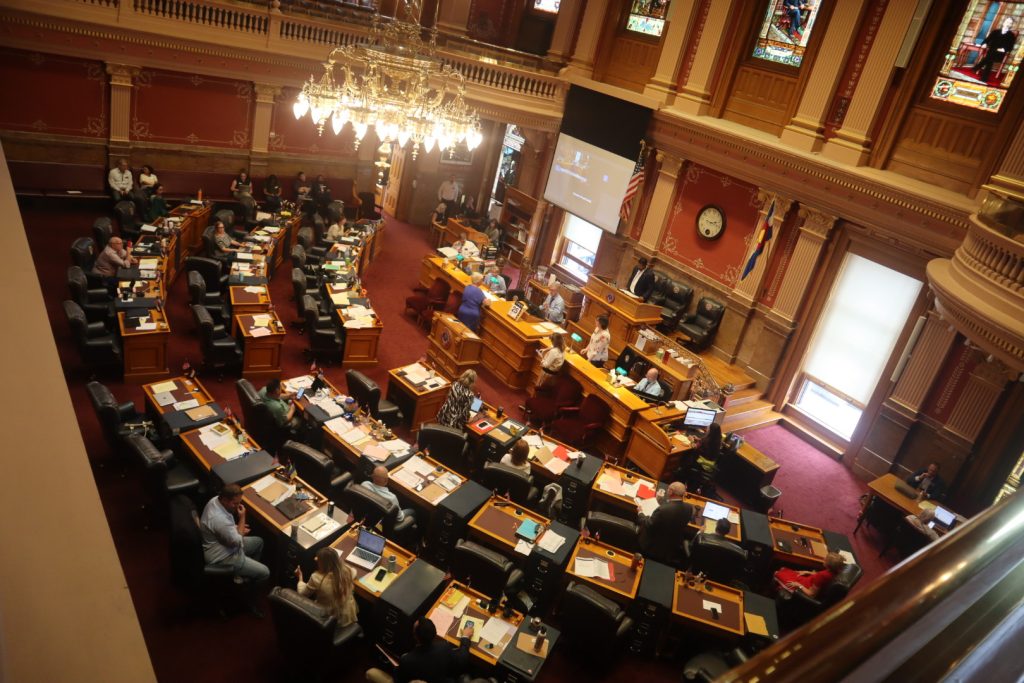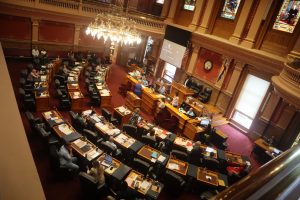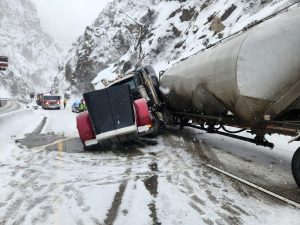Where Western Slope legislators stand on Colorado’s top education issues

Robert Tann/Summit Daily News
According to Colorado’s largest teachers union, Democrats voted overwhelmingly in favor of bills supporting public education compared to Republicans. On the Western Slope, the picture is more nuanced, both within and outside of the union’s criteria.
The Colorado Education Association, an affiliate of the National Education Association, released its 2025 Legislative Scorecard on Sept. 4. The scorecard tracks and scores the votes of legislators on important education bills and categorizes their votes as being “with” or “against” the strengthening and protection of Colorado’s public schools.
“I think that the legislative scorecards are so important because these organizations, they all have a different area of expertise, and they’re sharing who are the champions for the different issues,” said House District 57 Rep. Elizabeth Velasco, a Glenwood Springs Democrat. “I know that it’s impossible for us to be an expert on everything, so that’s why we also rely on other champions that do good work for the community.”
The Colorado Education Association is politically active and has historically supported Democratic candidates and left-of-center education policies. This year, the union’s legislative priorities focused on “ensuring sustainable school funding, reducing punitive accountability policies, strengthening workplace rights for educators and protecting immigrant students and families,” according to a news release.
One of the most notable legislative victories under these priorities was the passing of The School Finance Act, which increased funding by $256 million and advanced legislation to improve educator protections in schools. Sponsored by House District 26 Rep. Meghan Lukens, D-Steamboat Springs, and speaker of the House Julie McCluskie, a Dillon Democrat from House District 13, the bill was considered crucial to fully funding schools following the elimination of the budget stabilization factor in 2014, which had underfunded schools by around $10 million over 14 years.
“That is more money going into our classrooms, supporting our students and supporting our educators,” Lukens said. “So I was really proud to sponsor that bill and increase education funding, which is just so critical to our future.”
The bills included in the scorecard were selected by the Colorado Education Association based on the legislative priorities of union members. Not all bills included in the scorecard are directly related to education. Some are focused on topics like worker protections, use of state funds, and immigration, which the association sees as posing significant impacts to educators, parents and students when it comes to external barriers to education.
Senate Bill 276, sponsored by Velasco, was a top priority for Democrats in the state legislature. In addition to strengthening existing legal protections for individuals in Colorado, the bill makes it illegal for public institutions like schools and hospitals to collect and share personal information with federal authorities.
“In this immigration bill, we wanted to elevate that we all have constitutional rights. In the Constitution it says that kids have the right to public education, which is also a big piece,” Velasco said. “We want to make sure that those (rights) are followed here in Colorado.”
Here’s how Western Slope legislators in the Senate and the House performed according to the scorecard:
Regular session
Not all bills included in the scorecard became law. Senate Bill 5, formally named the Worker Protection Collective Bargaining bill, was vetoed by Gov. Jared Polis after negotiations between Democrats in the legislature and the labor movement fell apart.
“(The bill) would have gotten rid of that second election to form a union. I was also supportive of that bill, even if he didn’t make it to the finish line,” Velasco said.
Special session
Sen. Marc Catlin, a Montrose Republican representing seven counties including Eagle, Garfield and Pitkin, scored the highest among Colorado’s 12 elected Republican state senators serving in the Colorado General Assembly, along with Sen. Cleave Simpson from Senate District 6.
Catlin voted in support of the Colorado Education Association’s priorities five times during the regular legislative session, with three votes against. He did not make any votes in favor of bills backed by the union during the special session.
“If you’re going to vote for your scorecard, you’re probably not representing everybody in your district on both sides of the aisle,” Catlin said. “You look at each one of the votes separately, and you try to hear from the people in your district … and then the scorecards shake themselves out regardless.”
Catlin said he supported education-related bills that were bipartisan in nature, like the School Finance Act, the Education Accountability System bill and the Access to Educator Pathways bill, because he identified them as priorities in his district, even while several Colorado Republicans voted the opposite way.
“Immigration and some of those kinds of things, I think that’s more of a federal issue,” he said. “I vote for my district. … They’re the people who sit me, so sometimes I vote against my party.”
During the 2025 regular session, Catlin voted in support of multiple education bills like the Financial Literacy Graduation Requirement, House Bill 1192. The bills, despite centering on education, were not identified as priorities by the teachers union or included in the scorecard.
“There were (bills about) drug overdose education in schools, epinephrine administration in schools and financial literacy in schools that I thought would have been more important to them,” Catlin said. “The bills that I voted on, I thought were important to education in my district.”
In addition to scoring votes, the Colorado Education Association designated certain legislators as “Public Education Champions,” for those who took leadership in carrying tough bills.
Lukens was recognized for her work toward educator respect, while Velasco was recognized for her work toward immigration rights. McCluskie was recognized in the public education funding category.
As chair of the House Education Committee, Lukens sponsored several house bills highlighted in the scorecard, including Senate Bill 167, which creates an educator-focused home ownership program to help educators find and afford housing in the communities they serve.
“We know that having access to affordable, attainable housing is one of the number one things we can do to support our community members,” she said. Lukens, still working as an educator in Steamboat, is a former member of the Colorado Education Association.

Support Local Journalism

Support Local Journalism
As a Summit Daily News reader, you make our work possible.
Summit Daily is embarking on a multiyear project to digitize its archives going back to 1989 and make them available to the public in partnership with the Colorado Historic Newspapers Collection. The full project is expected to cost about $165,000. All donations made in 2023 will go directly toward this project.
Every contribution, no matter the size, will make a difference.








